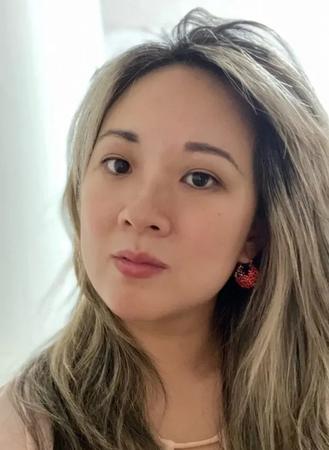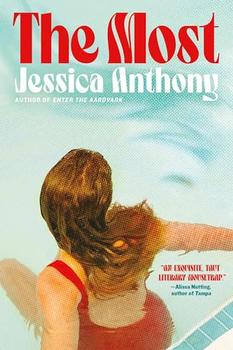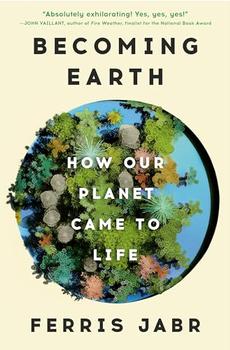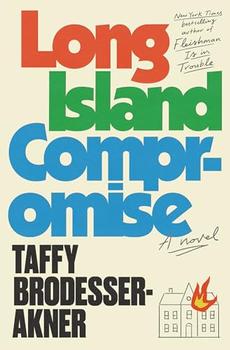
Eve J. Chung speaks about her debut novel, Daughters of Shandong
This story is based on your grandmother's escape with her mother and sisters out of mainland China during the Chinese Communist Revolution in the late 1940s. Can you tell us more?
When I was a child, I watched my grandmother use a heat lamp on her knees every night. She did this while watching Chinese period dramas, and I didn't think much of it. My grandmother was a hoarder of food (and almost everything else), and was always paranoid that my cousins and I were too frail, despite all of us being medically overweight. As an adult, I realized that many of her quirks were the result of trauma. After her father abandoned her, along with her mother and sisters, in mainland China, my grandmother lived on the brink of starvation until she made it to Taiwan. Her knees were irreparably damaged from kneeling on the ice during denunciation rallies run by the Communists, and she had liver disease from malnutrition. Though the story is told from my grandmother's point of view, the heroine is really my great-grandmother, who once had bound feet, yet still managed to drag three daughters through war-torn China and track down the husband who left them all behind.
This is your first novel. What inspired you to write it?
Daughters of Shandong was a surprise to everyone, myself included. I have been working full time as an international human rights lawyer for about ten years, and though my childhood dream was to be a novelist, it wasn't something that I thought could happen to me. After my daughter turned one year old, I went to visit my mom and we started talking about my grandmother—I always regretted that she never got to meet my husband or my children. Her story is amazing, but so much of it had already been forgotten. In late March 2022, I told my mom that I was going to write it all down. My mom thought that this was a great idea and offered to pay so we could self-publish it—because neither of us imagined that I'd actually sell a book. As I wrote, it became clear that too much of my grandmother's testimony was missing, so the book had to be a work of fiction. Thus, I pivoted to using my imagination to bring my research and family interviews to life.
It took me three months to write the first draft of Daughters of Shandong, and I started querying literary agents at the end of June 2022, finding my home with Berkley in mid-November. I have spent half of my life writing long and somewhat complicated documents within a short time frame, with strict deadlines—so in that sense I am accustomed to "panic writing," which was really what pushed this story from a jumble of ideas into a publishable novel.
How has the way your grandmother and/or mother told you their history informed your approach to telling this story?
Sadly, my grandmother never told me this story. Even when I was in my twenties, I think that she still thought of me as a child and didn't want to tell me anything gruesome. My mother herself only offered a few details—most of my life I had assumed that my grandmother had fled to Taiwan directly from Qingdao, via boat. I didn't realize until later that the women in my family had to walk to Qingdao from rural Shandong, and from there took a train to Hong Kong, where they lived in refugee camps before getting passage to Taiwan. I haven't told my own children anything about this story because my son is only five years old, and my daughter is two. Ideally, one day I would like to take them to my grandmother's hometown, Zhucheng, and make the journey with them and visit Qingdao, Shenzhen, Hong Kong, and then finally, Taipei.
What was the most challenging thing about writing the book?
One major challenge was time. Throughout the drafting process I was still working full time in a demanding job, and had both a four-year-old and a one-year-old to look after. The bulk of my writing was done after my kids went to bed. I felt like I had to take advantage of every free moment—so I never had free moments. Even while riding the elevator up to my office, I wrote, even if it was just a sentence. I kept my phone beside my bed because sometimes, before drifting off to sleep a thought would pop into my head and I'd have to jot it down. This novel was an unhinged, obsessive marathon, and it was truly exhausting. The pleasure of sharing it with readers now though has made it all worth it.
The novel tackles so much—mother/daughter relationships, intergenerational trauma, sexism, China's history in the twentieth century as well as its relationship to Taiwan today, and so much more. Did you have any themes in mind that you wanted to address in this novel, or did the themes develop along the way?
I did not think at all about themes, but many of these are inherent to who I am as a person. I think about feminism and sexism every day—it's my job as a women's human rights lawyer to do so. Since the impetus for this book was a connection between my daughter and my grandmother, that family connection between women was always on my mind. The intergenerational trauma was a surprise. To be honest, I still don't understand the concept well enough to say for sure that it was something I experienced. When writing, I felt the emotions of all of the characters profoundly, and wrote with an intuition that I cannot fully explain. I am all of the women in the book. Hai's character is probably who I am at my core, because my grandmother and I had very similar personalities. Di's character is the personification of the anger that I held, and still Eve and her grandmother hold, at the injustices in the world. The mom's character reflects who I became after my children were born, a person who is more fearful, yet also braver, than who I used to be. This book came from my heart, so it is only natural that it reflects the themes that are most important to me.
Without giving anything away, what was one of your favorite scenes to write?
There is a chapter in which Hai's mother disappoints her in a major way. It wasn't necessarily an enjoyable scene to write, but it is the one that healed my heart the most. When I think about what this book means to me, I always think of that scene. Sexism stems from a patriarchal society, but its staunchest supporters are often other women, as reflected in Nai Nai's character. When I was a child, it was the women—not the men—who explained our traditions to me; they were the ones who told me that I wasn't truly part of my own family, because I was going to marry and join my husband's. They were the ones who seemed obsessed with producing sons and heirs, while lamenting that they couldn't help their own parents because they were daughters. Men benefited from and perpetuated our sexist norms, but fellow women taught and enforced them. For a long time, I resented those female family members immensely. Writing this chapter helped me to forgive them and find my own way forward.
What do you hope readers take away from Daughters of Shandong?
Daughters of Shandong is, at its core, an unwavering and epic love story. There isn't romance in it, but it is about people who devote their lives to the happiness of their loved ones, and family members who are willing to sacrifice themselves for one another. This book is also about helping each other break free from the artificial and often arbitrary restrictions that society places upon us based on our gender. On a macro level, it is my hope that this book might inspire women and girls to push back against the sexism that continues to be perpetuated in the name of tradition or religion, and encourage everyone to eradicate gender discrimination. On a micro level, I would be grateful if this book could help anyone realize that they are stronger than they think they are, and they can do more than they think they can.
The full reading guide for Daughters of Shandong can be found here.
Unless otherwise stated, this interview was conducted at the time the book was first published, and is reproduced with permission of the publisher. This interview may not be reproduced or reprinted without permission in writing from the copyright holder.




Your guide toexceptional books
BookBrowse seeks out and recommends the best in contemporary fiction and nonfiction—books that not only engage and entertain but also deepen our understanding of ourselves and the world around us.